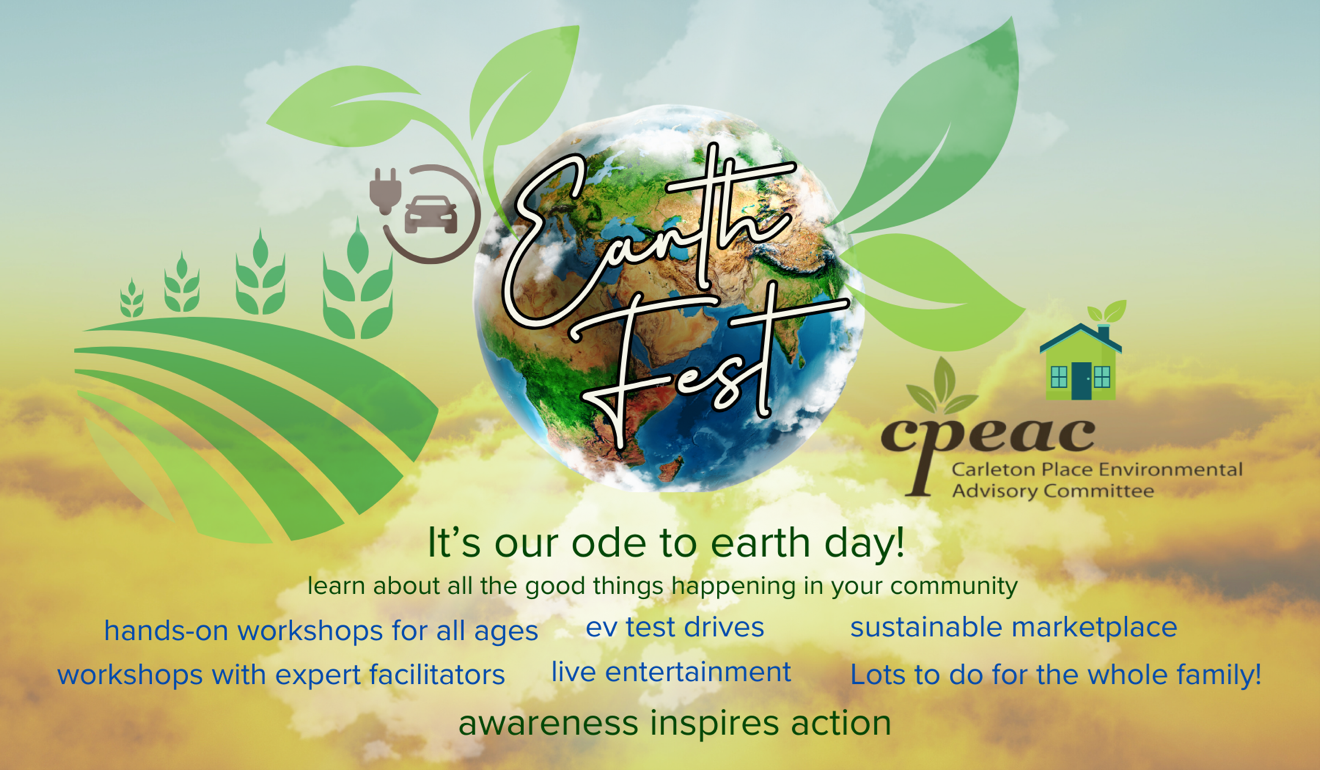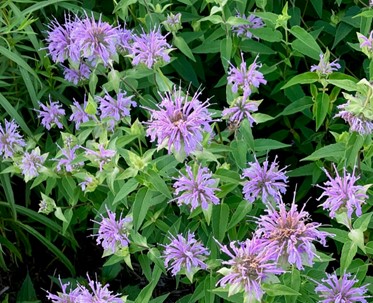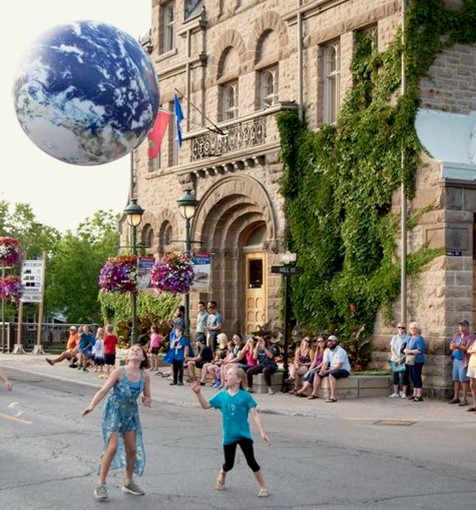Environmental Advisory Committee
The Environmental Advisory Committee (EAC) is a committee of Town Council made up of volunteers and one member of Council. We meet monthly and our meetings are open to the public.
Committee Chair: Colin MacDuff
Earthfest and Social Media Coordinator: Barbara Purdy
Council Representative: Jeff Atkinson
Members: Laura Cupper, Anne Raine, Jessey Rice, Michael Tobis, Marie Fernandes
Volunteer Opportunities:
We welcome volunteers to help with our current and future projects. There are many ways to participate, from signing up to help out at occasional events to serving on one of our subcommittees.
The EAC is seeking a youth member!
We are seeking a high school student to serve as one of our two student members. Student members attend our monthly meetings and help with events and projects as needed. It’s a great way to complete your community service hours while learning about environmental initiatives in our town! To find out how to apply, contact Town Clerk Stacey Blair (sblair@carletonplace.ca).
Contact Us:
If you have questions about our activities or are interested in volunteering with CPEAC, please contact us by email: cpeac@carletonplace.ca
Follow us on Facebook: https://www.facebook.com/CPEACCarletonPlaceEnvironmentalAdvisoryCommittee/

The Committee provides recommendations, advice and information to Town Council and staff on environmental issues related to municipal policies, programs and projects, including how climate change affects our community now and in the future.
We work with Town Council to educate residents, developers, and staff on the importance of integrating environmental and climate health into our daily operations and our plans for the future. Improving energy efficiency; phasing out fossil fuels; reducing waste; keeping our air and water clean; planning for extreme weather and other climate impacts; expanding urban greenspace and local food systems; preserving and expanding habitat for native pollinators, birds, and other wildlife—these are all interrelated ways to help stabilize the climate and build a thriving community for everyone to enjoy.
We review and comment on residential, commercial, and industrial development proposals to evaluate their environmental impact and help ensure that new developments are planned with sustainability and climate resilience in mind.
We also organize Earthfest, the Town’s annual Earth Day celebration, as well as other public events throughout the year to help build a culture of environmental stewardship and climate action in our community.

Current Projects:
Environmental workshop series:
At Earthfest and throughout the year, we organize free public workshops to help residents and local businesses learn about simple, cost-effective ways to reduce waste, cut greenhouse gas emissions, protect biodiversity, and take better care of our environment. Stand-alone workshops we offered in 2023-24 include:
• City Farmer: Adventures in Urban Food Growing, with author Lorraine Johnson
• Greening Your Home: How to Save Money and Help the Planet
• Waste Not! Waste Reduction & Composting in Your Home, Business, & Community
• Grow Your Own Pollinator Garden, with master gardener Dale Odorizzi
Composting and Waste Reduction Initiatives:
The Environmental Advisory Committee supports composting as an important part of our waste reduction and climate action strategy. We offer workshops on home composting and help promote Town initiatives like the FoodCycler program, the Backyard Composter and Rain Barrel Rebate Program, and Just Good Compost, a new weekly compost collection service that launched in Carleton Place in 2024.
Just Good Compost makes it easy to reduce your household waste– they pick up your kitchen scraps, do the composting for you, and also support the community by providing employment for adults with developmental disabilities. And the first 500 Carleton Place residents to sign up will receive a $75 discount off the cost of an annual subscription, subsidized by the Town of Carleton Place. For more information and to sign up, visit the Just Good Compost website.
Why composting? Most people know that composting is an easy, cost-effective way to turn food waste into nutrient-rich soil for home gardens. But did you know it also helps fight climate change? Composting improves carbon sequestration in the soil, and it helps lower greenhouse gas emissions by keeping methane-producing organic waste out of landfills. Methane is a potent greenhouse gas with about 86 times more global warming potential than carbon dioxide in the short term. About 23% of Canada’s methane emissions come from municipal landfills—so diverting organic waste from landfills to compost bins is a significant way to help reduce greenhouse gas emissions and stabilize the earth’s climate.
Waste reduction:
Did you know that the Town of Carleton Place has a free app with information and reminders about your household recycling and waste collection schedule? Did you know the app has a search function where you can look up items to see which ones are accepted for collection and which are not? CPEAC is working on a major update to the CP Waste Solutions App for Fall 2024 which will make the app even more useful. By adding information about local organizations that re-sell or recycle items that you can’t put in your blue or yellow bin, we hope to empower residents to keep more items out of the landfill and participate in the shift to a circular economy, which could reduce greenhouse gas emissions by up to 45% globally.
Download the free CP Waste Solutions App on Google Play or the Apple App Store, or from the Town’s Waste Collection page.
Naturalizing yards, gardens, and public green space:
We are developing ways to support residents and Town staff in naturalizing private yards and creating more naturalized areas in our public parks and green spaces.
What is naturalization and why does it matter? Naturalization means replacing cultivated landscapes, such as lawns, with native grasses, wildflowers, trees and shrubs planted in ways that mimic local ecosystems. Once landscapes are successfully naturalized, they are easier to maintain than a cultivated lawn, and help conserve water, energy, and greenhouse gas emissions because they don’t require as much watering and mowing. Naturalized areas also help store carbon and absorb rainwater for greater climate resiliency, and they protect biodiversity by providing much-needed habitat for native pollinators, birds, and other wildlife.
Pollinator garden at Roy Brown Park:
In 2021, CPEAC planted a Pollinator Garden in Roy Brown Park (the park entrance is at the end of Lake Avenue West, across from the boat launch).
Native pollinators—wild bees, butterflies, moths, and hoverflies—are essential for healthy ecosystems and food systems. They help pollinate many agricultural crops as well as the native wildflowers, shrubs and trees that provide habitat for birds and animals. But many pollinators are now threatened or facing extinction because of habitat loss, pollution, climate change, pesticides and herbicides, disease, and competition from non-native honeybees. By planting a variety of native wildflowers, such as black-eyed susan, hairy beardtongue, wild bergamot, and heath aster, we provide the right kind of food and nesting places to help native pollinators thrive.
At the Pollinator Garden, you can see these flowers in action, and maybe get inspired to create your own pollinator garden at home or school. We’ve provided signage to help you learn about the native plants and the pollinators they support.

Backyard Composter Rebate
Residents can purchase a backyard composter of your choosing and then submit the receipt to the Town of Carleton Place for a $40 rebate. Residents can directly reap the rewards by creating their own nutrient rich compost for their lawns and gardens.
Purchase a FoodCycler
The FoodCycler™ is an electric appliance that offers in-home, countertop processing of food waste which generates an organic material that can be added to your soil / gardens or can be dropped off at the Compost Yard. Residents can purchase one (1) of three
(3) models available at a subsidized rate. Please visit our Foodcycler page on our website to find the FoodCycler that best suits your family.
Just Good Compost
Residents can now sign up for the Just Good Compost (JGC) service, a new composting pick up service in Carleton Place. Just Good Compost delivers you a refurbished plastic bucket for your kitchen scraps. Each week they pick up this bucket and replace it with a clean one. They take everything that your backyard bin will not, including meat, bones, napkins, and coffee grounds in filters.
Subscriptions:
Monthly: $30
Annual: The Town of Carleton Place is providing a $75 subsidy to the first 500 households within the boundaries of the municipality that register for an annual subscription. For those households that will be subsidized, the cost payable to Just Good Compost will be $199. Once the subsidized subscriptions have been fully allocated, the annual subscription will be $275.
Interested in signing up for this service? Visit justgoodcompost.com and fill out the Contact Form or email the Just Good Compost team at: justgoodcompost@gmail.com
Climate change is affecting people all over the planet. Already, human activity has caused global average temperatures to rise by 1.1 degrees C above pre-industrial levels, and the impacts on people and nature are more widespread and severe than scientists predicted even a few years ago. We all remember the wildfires of 2023, and we can expect even more fires, floods, severe storms, heat waves, droughts, crop failures, and species extinctions in the coming years. So, we need to take action now.
Fortunately, there are solutions—we just need to implement them faster and on a larger scale. Individual actions alone can’t bring about the systemic changes we need. But we can work together to scale up our actions and urge our governments, workplaces, schools, and organizations to make climate action a top priority.
• On the mitigation side, we need to rapidly cut greenhouse gas emissions and shift away from burning fossil fuels, the #1 cause of global warming. We need to protect and restore natural ecosystems that store carbon and protect against climate risks. • And on the adaptation side, we need to make our buildings, infrastructures, food systems, and economies more resilient to climate impacts.
• The good news is that many of these things have co-benefits that improve physical and mental health and make life easier and more enjoyable for everyone.
Here are ten things you can do to help build a safer, healthier world where people and nature can flourish:
1) Stay informed about climate issues and solutions,* and let your government representatives know you want ambitious, effective climate action.
• Did you know Lanark County has a Climate Action Plan? Municipalities within the County are also working on their own Climate Action Plans. You can help by learning more about what makes a strong Climate Action Plan, and subscribe to the CP Scoop to stay informed about climate initiatives in Carleton Place and opportunities for public comment.
2) Make your home more energy efficient, and switch from fossil fuels to renewable energy if you can. Invest in better insulation and energy-efficient doors and windows. Replace your gas furnace or water heater with a heat pump version, your gas stove for an induction stove. See if you qualify for funding to help pay for a home energy retrofit.
• Climate Network Lanark has a list of funding sources on their website, and a Climate Concierge program to help with the home energy retrofit process.
3) Switch to climate-friendlier transportation. Over 63% of community greenhouse gas emissions in Lanark County come from on-road transportation. To help reduce those emissions, consider leaving the car at home and travelling by carpool, rideshare, bike, or on foot whenever you can. Unfortunately, we no longer have a commuter bus service in Carleton Place, but we hope regional public transit will be part of our future. Meanwhile, see Lanark County’s Transit Page for other options. When it’s time to replace your car, consider buying an electric vehicle (EV), which produces far less emissions over its lifetime than a gas-burning car.
4) Consider how often you travel by air. Airplanes burn large amounts of fossil fuel, so taking fewer flights is one of the fastest ways to reduce your annual greenhouse gas emissions. If it’s feasible, take the train instead, or explore vacation options closer to home.
5) Green your banking. Find out if your bank or pension fund invests in fossil fuels. If they do, let them know you want them to invest in climate solutions instead. Consider ESG investing, where your money goes to support companies that are committed to positive change. Support businesses that are taking action to reduce waste, green their supply chains, and invest in climate solutions.
6) Make your diet more climate-friendly. You don’t have to give up the foods you love, but meat and dairy production are responsible for over 14% of global greenhouse gas emissions and other environmental problems such as deforestation, so enjoying them less often can have a significant impact. Buy local to support local farmers.
7) Refuse, reduce, reuse, repair or repurpose, recycle, and compost. Reduce the amount of stuff you buy in the first place—especially things made of or packaged in plastic, which is made from fossil fuels, emits greenhouse gases both in production and after disposal, and is so expensive to recycle that most of it ends up in landfills. Compost your organic waste, which in landfills produces large amounts of methane, a potent greenhouse gas (see “Composting Initiatives” above!) Consider starting a waste reduction project at your workplace or school.
• Starting in late 2024, you’ll be able to consult the CP Waste Solutions App to find out where to dispose of hard to recycle items locally.
8) Plant native plants, and consider replacing part of your lawn with naturalized areas (see above!) Take advantage of the Carleton Place Urban Forest Committee’s Residential Tree Program and plant a tree in your yard. By adding to our urban biodiversity and tree canopy, you’ll be helping clean the air, conserve water and soil, and provide shade to reduce energy consumption and keep our neighbourhoods cooler during heat waves.
9) Talk about climate change with family, friends, neighbours, and coworkers. The majority of people in every country are concerned about climate change and support climate policies, yet most of us underestimate how widespread this shared concern is. Talking about it can help us all get more informed and empowered to support collective action and advocate for ambitious climate policies.
10) Team up with local organizations that are already working on climate solutions (see below). You don’t have to reinvent the wheel. Find out what people are already doing and how you can help.
* Key takeaways from the 2023 report of the IPCC (the UN’s Intergovernmental Panel on Climate Change): https://www.wri.org/insights/2023-ipcc-ar6-synthesis-report-climate-change-findings
* UNEP (United Nations Environmental Program) explainer on climate change:
https://www.unep.org/facts-about-climate-emergency
We encourage connection, cooperation, and information-sharing between environmental groups in Carleton Place and across Lanark County. Here are some of the many local organizations working to take care of the local environment. Visit their websites to learn more and find out how to get involved.
• Climate Network Lanark: https://www.climatenetworklanark.ca
• Rideau Environmental Action League: https://www.realaction.ca
• Urban Forest and River Corridor Advisory Committee, Town of Carleton Place: https://carletonplace.ca/urban-forest-river-corridor-committee.php
• The Leeds, Grenville & Lanark District Health Unit has a helpful info page on climate change and its impacts on public health: https://healthunit.org/health-information/climate-change/
• County of Lanark climate initiatives: https://www.lanarkcounty.ca/en/environmental-initiatives/climate.aspx
• Mississippi Valley Conservation Authority: https://mvc.on.ca • Watersheds Canada: https://watersheds.ca

